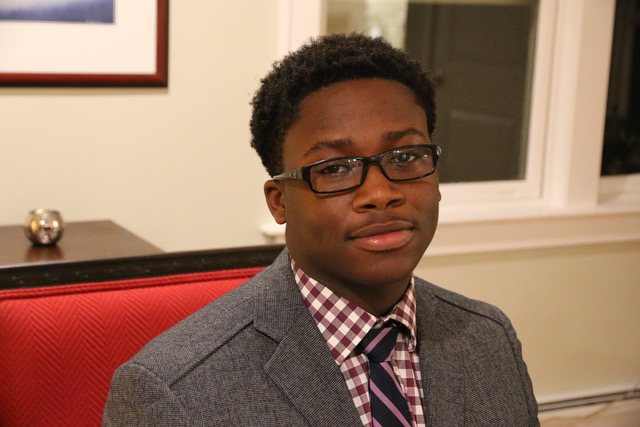Perry Asibey-Bonsu

Titles
I remember the car in Ghana.
I remember walking out of the bending metal shed, sweetbread hanging on the walls and the floors covered with yams, and stepping onto the cracked road that stretched from nowhere to nowhere to see its glimmering red glory. You see, this car was a classic American car, and American was a heavy title to hold because it was unique for miles and miles around. The reason this car was so special wasn’t the torn, caramel-colored leather that covered the seats, or the metal wheel that caught cold each time night fell, or the scratchy windows. The reason this car was so special was the fact it never moved.
It was our playground. This stationary vehicle transformed into warships, poorly designed tanks we remembered from old war movies, and a retired stock car in need of serious repair. Only once did the car abandon its role as my imagination’s container and transform itself into a space for extrication.
Footsteps. I heard footsteps on the cracked road that stretched from nowhere to nowhere, and suddenly my body froze, caught between the wheel that caught colds and the leather the color of caramel. Certainly I had seen women before, certainly I knew what girls looked like, as I had played with them before … But these walking by the car’s window speaking in a language my motherland had not birthed were not women. If so, where was the evidence of the soil on their skin, where was the darkness Mother Earth gave us so we wouldn’t be found when the terrors of night tried to claim us? Where was it? Where was it?
African American.
I followed these strange women back to their land a year and a half after they revealed themselves to me. Wading, wading into a new land I had heard myths about.
African American.
I never saw these women again, but I found myself in a brightly colored room, learning from a brightly pale teacher, surrounded by pupils who did not look like me. Learning, learning the oath of this free land.
African American.
“Where do you come from? Is it far? Why do you say your d’s so heavily and why do your o’s float up to the sky? Can you dance? Dance for us. Dance.”
African.
The product of a place left in the shadow of oblivion, a place with glimmering gold sunk deep into its womb.
American.
“Dance for us.”
I had followed these strange women back to their land, and in my search for them the terrain lit up with familiar pigments, familiar shades. Brothers! Sisters! What need do I have for a mirror when I could just gaze upon you, you do not know how long —
“Ey, cool it. Ain’t nobody playin’ around, son, so don’t you be bringing that stuff around here. We run these streets, we run these cities, and if you ain’t trying to respect that then wuz good homie?”
Black.
Curls of the fingers and gritted teeth.
Black.
The bearing of colonies and inner-city communities on the back.
Black.
Torn out, out of the shadow of oblivion into the searing light.
But which title shall be mine, which name shall my identity call its home? I would like to forget the yams and the sweetbread but my d’s are too heavy and my o’s reach for the sky. Tell me: Which side of the slash on this application I stand on, which pencil-marked circle can contain the expanse of who I am?
Title. Give me a title.
Titles.
African.
American.
Black.
White.
Titles.
I remember the special red car in Ghana, the American classic. What a heavy title that car carried, and what made it so special was that it never moved.
—Perry Asibey-Bonsu ’17
Editor’s note: Perry performed this piece at the citywide MLK Day Celebration at the Red Brick Church in Exeter in 2017. It was first published in the spring 2017 issue of The Exeter Bulletin.


